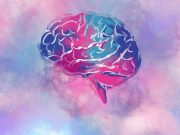Tag: Cognition and Cognitive Therapy
Migraine Tied to Lower Cognitive, Language Function
Migraine also significantly associated with higher risk for dementia
Brain Changes ID’d in WTC Responders With Cognitive Impairment
DTI connectometry analysis shows altered white matter tracts in WTC responders with cognitive impairment and/or PTSD
Cognitive Ability Influenced by Factors Throughout Lifetime
Link between childhood cognitive ability and cognitive state in later life modified by cognitive reserve index based on lifetime activities
Physical, Cognitive Activity Linked to Cognitive Reserve
Associations more pronounced in women, and APOE4 carrier status attenuates associations among women
PTSD Linked to Faster Cognitive Decline in Middle-Aged Women
Worse cognitive trajectories seen in association with higher number of PTSD symptoms among middle-aged women
Glaucoma Not Linked to Change in Cognitive Function
No link seen between prevalent, incident glaucoma and levels of or rates of change in TICS scores when categorizing glaucoma by type
Cognitive Impairment Predicts Outcomes for ICU Survivors
Cognitive impairment at hospital discharge linked to risk of new physical disability at six-month follow-up
Cardiometabolic Diseases Accelerate Cognitive Decline, Dementia
Dose-dependent response seen with increasing number of cardiometabolic diseases and cognitive decline
Type 2 Diabetes Tied to Accelerated Brain Aging, Cognitive Decline
Authors say the neurological impact may start before diabetes is formally diagnosed
Cognitive Therapy, Relaxation Training Both Beneficial for Migraine
Both treatments increase patient self-efficacy; improvements from baseline to 12-month follow-up for both treatments in all primary outcomes














